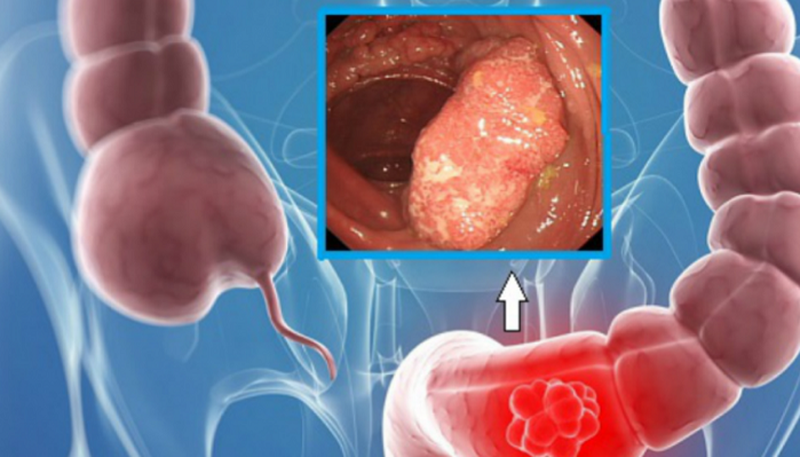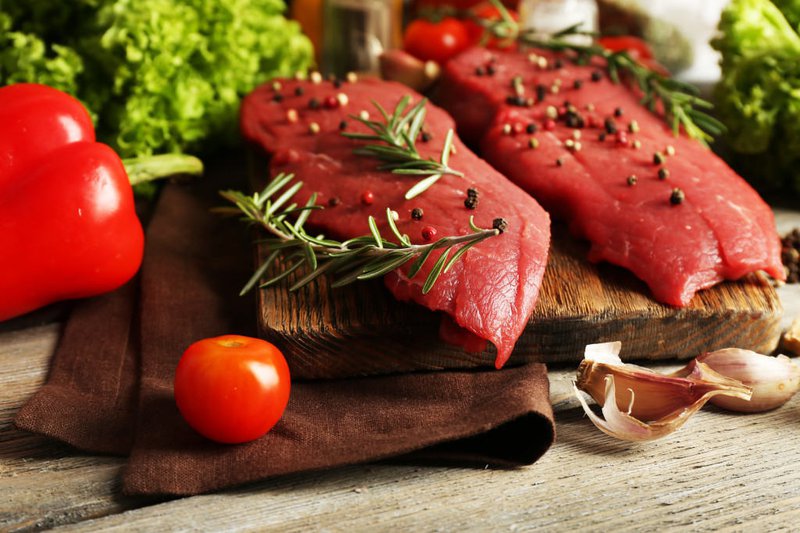The article was written by oncologists, Share99 Times City International Health Hub.
According to a recent discovery, consuming a moderate amount of red and/or processed meat is also associated with an increased risk of developing colorectal cancer.
1. Risk of colon cancer when eating red meat
The study authors found that on average consuming 76 grams of red meat or processed meat per day, was associated with a 20 percent higher risk of colorectal cancer than consuming only about 21 grams per day. Drinking alcohol also increases the risk of colorectal cancer, but eating foods rich in fiber from bread and cereals helps lower the risk of this.
According to research by the University of Oxford, UK published online April 17 in the International Journal of Epidemiology, researchers found people who ate red meat and processed meat four times or more per week had a higher risk of developing bowel cancer than those who ate red and processed meats less than twice a week. The World Health Organization classes processed meats as carcinogenic meats and red meats that can cause cancer – but most [WHO] previous studies look at people of the 1990s or earlier and the diet has changed dramatically since then, so this study provides a more up-to-date insight that is relevant to meat consumption today.
The American Institute for Cancer Research and the World Cancer Research Fund have published several reports over the past 10 years on the effects of diet, nutrition, and physical activity on the risk of certain types of cancer. The most recent study, published in 2017, found that consuming red meat and processed meats may increase the risk of colorectal cancer, similar to drinking more than two cups of alcoholic beverages a day. On the other hand, eating whole grains daily and enhancing physical activity can reduce the risk.
In 2015, the WHO's International Agency for Research on Cancer (IARC) classified processed meat as a carcinogen for humans (group 1) on the basis of sufficient evidence of colorectal cancer. In addition, the group said, there is a positive link with stomach cancer.
IARC has also classified red meat as potentially carcinogenic to humans (group 2A). This decision is based on relevant data showing strong mechanical evidence of carcinogenic effects. This association has observed mainly for colorectal cancer but also for both pancreatic cancer and prostate cancer.
The authors of the current study point out that most previous studies show that the risk of colorectal cancer in people who consume a lot of red meat and processed meat is carried out in the 1990s or earlier, and the pattern of meat consumption has changed.
In the recent study of 475,581 people between the ages of 40 and 69 between 2006 and 2010, by filling out a questionnaire about how often food they ate. The diet was then re-measured on 175,302 people.
At an average follow-up period of 5.7 years, 2609 cases of colorectal cancer occurred.

2. Risk ratio (HR) for colorectal cancer
According to the multi-variable analysis, the risk ratio (HR) for colorectal cancer was 1.20 among those who consumed an average of 76 g / day of red meat or processed meat compared to those who consumed an average of 21 g / day (for those who ate more than 50 -g / day this ratio was 1.17).
For red meat, HR was 1.15 for those who consumed an average of 54 g/day compared to those who reported an average consumption of 8 g/day (and > 50 g/hr day was 1.18).
For processed meats, HR is 1.19 for those who consume 29 g / day compared to those who consume an average of 5 g / day (and > 25 g / day, HR is 1.19).
In relation to the consumption of alcoholic beverages, beer is associated with an increased risk of colorectal cancer (HR per 10 g/day increase of alcohol from beer by 1.11). For each 10 g/day increase of alcohol from alcohol, HR is 1.05; with each increase of 10 g / day of alcohol from spirits, HR is 1.08.
3. Solutions to reduce the risk of rectal cancer
Researchers assessed the impact of other foods and alcohol. They found that the amount of fiber from bread and breakfast cereals was associated with a reduced risk of colorectal cancer but this conclusion was not clear given the amount of fiber in vegetables and fruits.
Commenting on the study, Gunter Kuhnle, Ph.D., associate professor of nutrition and health at the University of Reading, UK, told Medscape Medical News that he felt the study largely confirmed previous results showing an association between eating red meat or processed meats with colorectal cancer. "This has been shown in a number of observation studies," he said. "By confirming these results, the study clearly reinforces the evidence, especially when it is done on people who are in very different times from previous studies. "In my words, the more interesting aspect of the study is the results of fiber," Kuhnle added. "Again, they are not new but confirm and reinforce the evidence we have that fiber intake can minimize the risk of colorectal cancer caused by red meat/processed meats."
For direct advice, please click hotline number or register online HERE. In addition, you can register for remote consultation HERE
Source: Medscape april 2019
- What is insoluble fiber?
- Fiber-rich food supplements for children
- Suggest 11 alternatives to Pasta and Noodles

